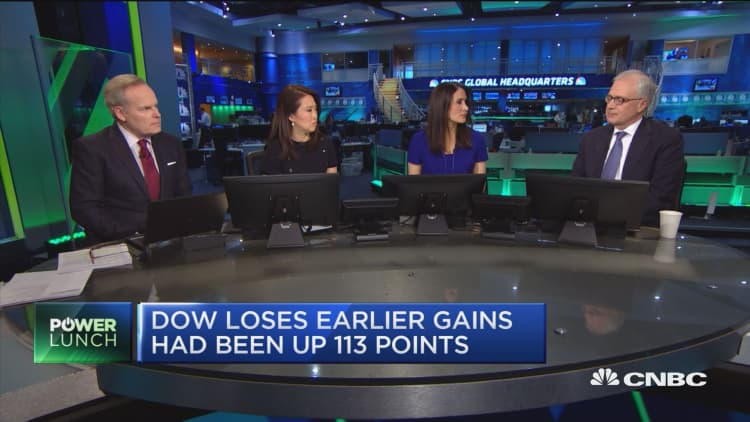
Not even President Donald Trump's new tariffs can bring down the 9-year bull market, according to Wall Street veteran Edward Yardeni.
"Bear markets are caused by recessions," Yardeni told CNBC's "Power Lunch" on Monday. "It would have to be an event, in my mind, that causes a recession."
Yardeni, president and chief investment strategist at Yardeni Research and seasoned market historian, said protectionism could cause a recession, but only "if it goes wild." He pointed out that former President Ronald Reagan was a protectionist, "and it didn't get to the point of causing a recession."
Meanwhile, the market inches higher amid political uncertainty, such as the new tariffs Trump signed last Friday. The Dow Jones industrial average declined 135 points in early trading Monday but was still up over 25,000. The S&P 500 traded flat, while the Nasdaq composite was up for the seventh straight day in a row.
"When I started, the Dow was a thousand," said Yardeni, who has more than 40 years' experience in the industry. "Now it's 25,000." He said the markets will continue to go even higher.
"Earnings just keep growing in a growing economy," said Yardeni, who recently authored the book "Predicting The Markets: A Professional Autobiography."
Joseph Tanious, principal investment strategist at Bessemer Trust, also predicted the market will continue to grind higher, but also expects a return of volatility.
"I suspect we're looking at choppier markets," Tanious told CNBC on "Power Lunch."
But, some investors fear political turmoil, such as the heavy new tariffs on imported steel and aluminum or Gary Cohn's recent resignation from the White House.
"The market does care," said John Mowrey, managing director and chief investment officer at Allianz Global Investors. "If you look at the market reaction, we do not like exogenous events."
Doug Butler, senior vice president and director of research at Rockland Trust, said he's comfortable with trade talks but concerned the president might take it "a step too far" and end up in a full-scale trade war.
Yardeni, however, said these issues won't affect the market.
"The president is very much into the art of the deal," he said. "He likes to negotiate. He likes to take extreme positions."
"I think he's really shooting not to eliminate free trade but to make it fairer," he said. "It would be a misperception to say that trade is completely fair. We are taken advantage of in a lot of areas."
A bigger determinant in the market, Yardeni said, is globalization.
"A lot of this bull market we've had since Donald Trump has been president has had more to do with the global economy that is coincidentally doing extremely well," he said.


